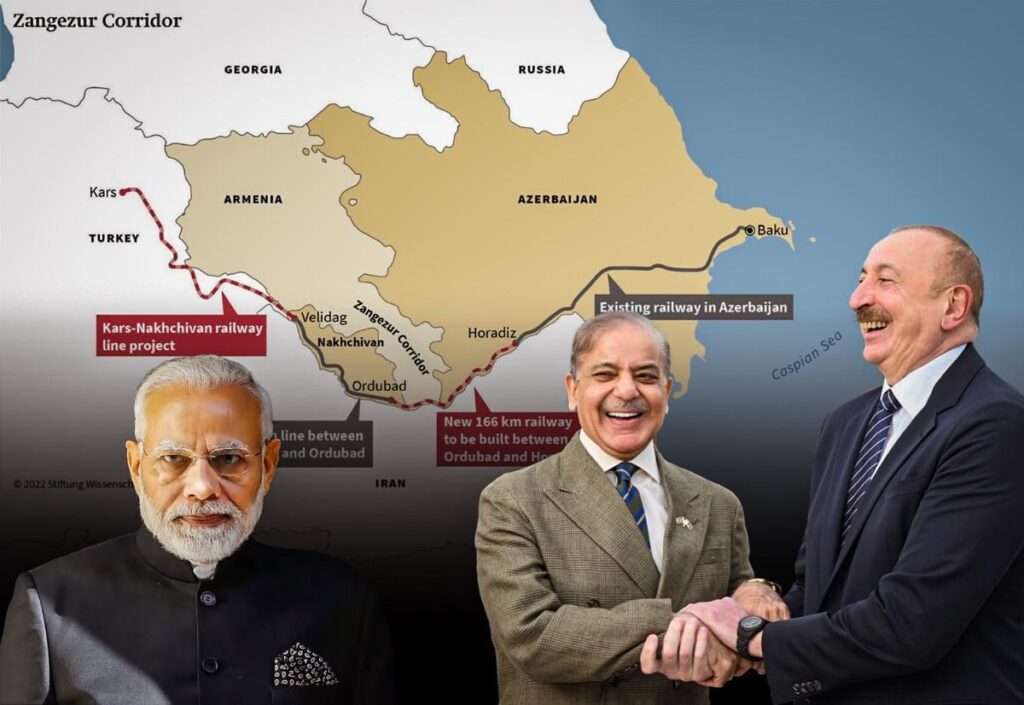The Zangezur Corridor is a proposed Azerbaijan-Turkey transport link through Armenia, which may have geopolitical risks for India, threatening the Iran-Armenia trade route and enhancing the Turkey-Azerbaijan-Pakistan axis. India counters this by deepening ties with Armenia and Iran to safeguard strategic interests and regional influence in Eurasia.
On May 13, the secretary of Armenia’s Security Council paid a quiet visit to India, where he met with his Indian counterpart, National Security Adviser Ajit Doval. At the forefront of the agenda was Operation Sindoor recently completed in India. On May 27, Pakistan’s Prime Minister Shehbaz Sharif met with Azerbaijan’s President Ilham Aliyev and thanked him for supporting Pakistan against India. These incidents invite further exploration of the geopolitical environment, and require us to consider the importance of the Zangezur Corridor.
What Is the Zangezur Corridor?
The Zangezur Corridor is a proposed transport route that connects mainland Azerbaijan to Azerbaijan’s exclave, the Nakhchivan Autonomous Republic, through Armenia’s Syunik Province. The Zangezur Corridor would add additional roads and railways and establish easy Azerbaijani access to Nakhchivan. The Syunik Province is geographically critical, bordering Azerbaijan’s East Zangezur province to the east, Nakhchivan to the west,and Iran’s East Azerbaijan province to the south. Historically, two Soviet-era railways had connected Nakhchivan with Azerbaijan but were rendered unusable after the First Karabakh War in the 1990s. Azerbaijan now aims to rebuild these connections and views the corridor as part of a broader transport link from Baku to Türkiye’s Kars Province, integrating into an ambitious vision of trans-Eurasian trade that would connect Europe with Central Asia and China. Azerbaijani sources often refer to it as the “Nakhchivan Corridor,” emphasizing its national importance.
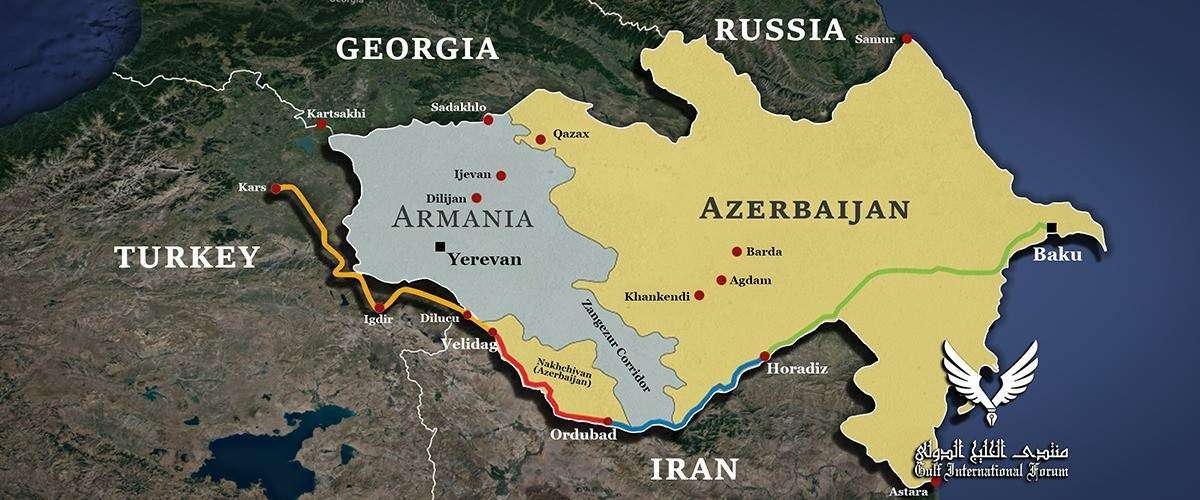
Issues and Constraints
The corridor faces major resistance despite its strategic aims, particularly from Armenia and Iran.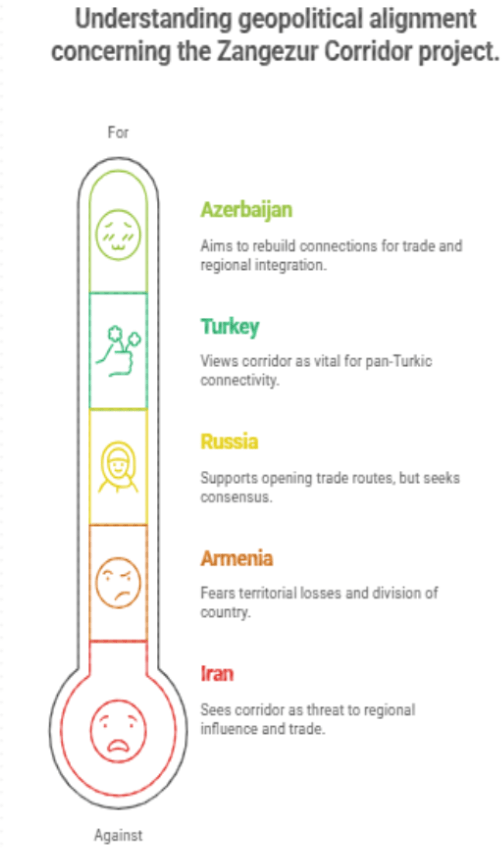
Armenia’s Concerns: The corridor would go through Syunik, Armenia’s only land link to Iran, and is seen as a potential threat to Armenian sovereignty. A great number of Armenians are worried that the project could fracture the country, and might even lead to loss of territory. The corridor is an issue that is politically sensitive in Armenia, dividing nationalists and liberals.
Iran’s Opposition: The corridor is a strategic and economic threat to Iran. It fears being cut off from direct access to Armenia, thereby weakening its influence in the South Caucasus. Additionally, the corridor would sidestep Iran’s desires to be a key trade corridor from China’s east to Europe’s west, some of which would also run through the International North–South Transport Corridor (INSTC). Iran perceives that the closer collaboration between Turkey and Azerbaijan is a potential threat to Iran’s own national integrity and influence.
Russia’s Uncertain Position and Misgivings: While Russia still hopes to exploit its position as mediator of the 2020 ceasefire agreement (which allowed for the reopening of regional transport routes), it shies away from the phrase “Zangezur Corridor.” Although Moscow would agree to the opening up of trade routes, it is cautious in the face of the instability in Armenia and the diminished role it has in the region. It is seeking collective agreement rather than conflict, especially because Turkey has become considerably more influential in the region.
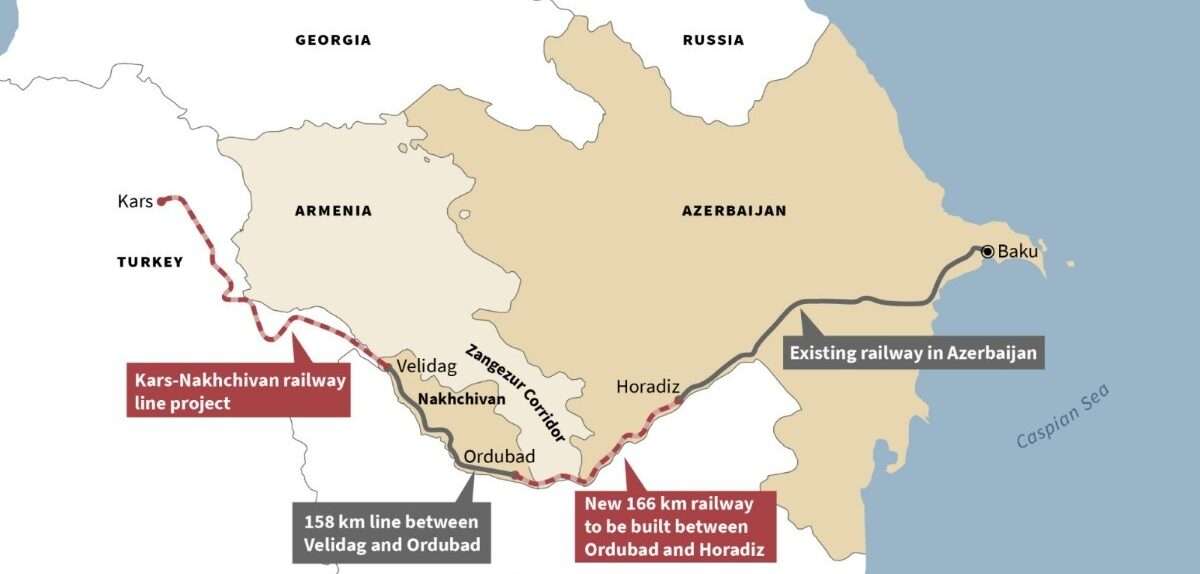
Recent Developments: During the fallout of the 2020 resolution of the conflict in Nagorno-Karabakh, the notion of establishing a Zangezur Corridor was strengthened in part because the structured Russian-brokered ceasefire agreement called Article 9: “All economic and transport links in the region shall be unblocked” Azerbaijan believes this to be tacit support to build the Zangezur Corridor.
- Turkey is already an outspoken proponent of installing this corridor and is approaching it as “complete” consent to act in conjunction with (and alongside) Azerbaijan. Turkish Minister of Foreign Affairs Mevlüt Çavuşoğlu has stated in the public domain that the corridor intends to be an extremely important “gateway” or “artery” of pan-Turkic intersectivity. Russia has shown interest in overseeing the corridor’s development, possibly as a mediator between Azerbaijan, Turkey, and Iran.
- Azerbaijan claims that Armenia is slowly softening its stance, although no official confirmation has come from Yerevan. Some analysts speculate that if talks fail, Azerbaijan may attempt a forceful takeover, raising fears of renewed conflict.
- An alternative route through Iran has been suggested to bypass Armenia altogether, but that option has made limited progress.
Meanwhile, international diplomacy is heating up. Pakistan has voiced its support for Azerbaijan, while Armenia seeks to strengthen ties with India and Iran, with high-level meetings taking place in Delhi and Tehran.
Why It Matters for India
For India, the Zangezur Corridor poses serious strategic and economic risks. India’s trade and connectivity strategy relies heavily on Iran, especially the Chabahar Port and the International North-South Transport Corridor (INSTC). This multimodal route links India to Russia and Europe, bypassing Pakistan and providing direct access to Armenia and the Black Sea.
If the Zangezur Corridor is realized, particularly under Turkish & Azerbaijan control, it could:
- Undermine India’s investments in Iran and Armenia.
- Strengthen the Turkey-Azerbaijan-Pakistan axis, all of whom India views with suspicion.
- Potentially be integrated into China’s Belt and Road Initiative or even extended from the China-Pakistan Economic Corridor (CPEC), further encircling India strategically.
- Cut off India’s overland access to Armenia, reducing its regional influence and diplomatic reach.
- It must be remembered that Turkiye is against the India-Middle East-Europe Economic Corridor (IMEC) as it envisages itself as an energy and transport hub in the region.
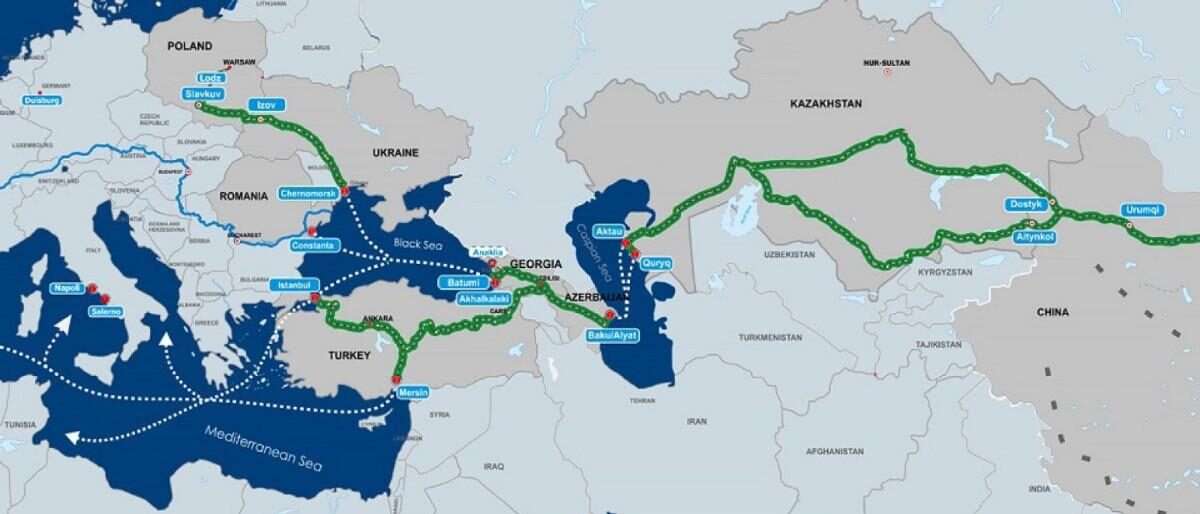
India’s Strategic Role
India has taken a clear position by enhancing defence and diplomatic ties with Armenia. It has supplied Yerevan with modern weapons, including Swathi radars, Pinaka rocket systems, and anti-tank missiles, all shipped via Iran. India sees its support for Armenia as a counterbalance to the Pakistan-Turkey-Azerbaijan nexus. Experts argue that New Delhi should:
- Deepen its military and economic cooperation with Armenia.
- Collaborate more closely with Iran and Russia to bolster the INSTC.
- Publicly oppose any forced implementation of the corridor that threatens regional sovereignty.
Backing Armenia on this issue also aligns with India’s broader goals: resisting Chinese influence, maintaining alternative trade routes, and building a multipolar Eurasian framework that does not favour any single regional bloc.
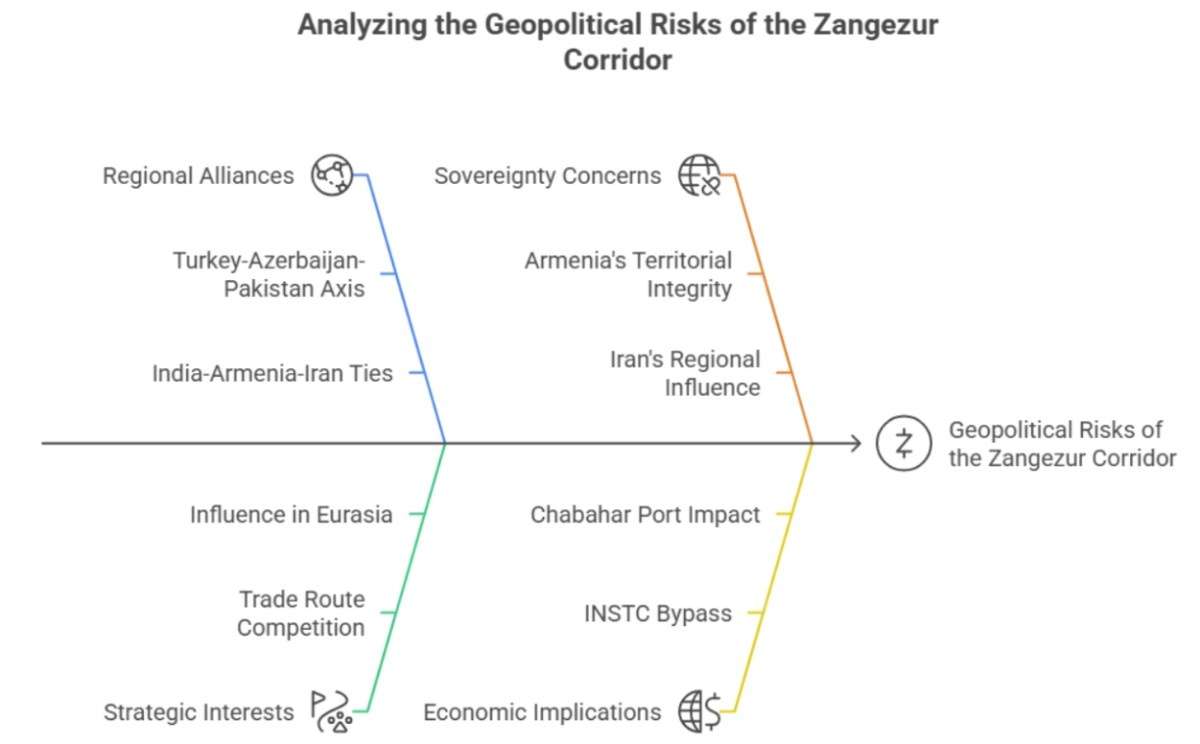
Conclusion
While the Zangezur Corridor is not a direct BRI project, its development is seen as potentially aligning with BRI goals and benefiting from the initiative’s infrastructure investments. History (like the ancient Silk Route) showed us that such trade corridors often become instruments of influence, sometimes undermining the sovereignty and strategic autonomy of smaller nations. In this context, India, as an emerging global power, must respond with nuanced diplomacy, strategic economic initiatives, and strong alliances. This is essential not only to safeguard regional stability but also to counterbalance China’s growing geopolitical and economic dominance.

